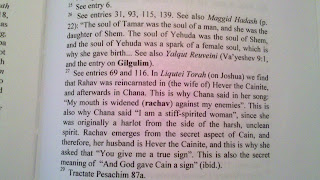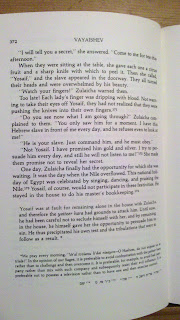"The 100 talents were used to cast the bases for the sanctuary and the cloth partition. There were a total of 100 bases made out of the 100 talents, one talent for each base."
Here we have the secret of the name of God Adonai and the number 100, as we have learned before.
Connected to this is the story of the four Sages who entered the Garden of Mysteries. Since Adam made a mistake, and we are still enjoying its fruits, these Sages decided to correct this. They may have wanted to correct the error itself, or they may have wanted to repair its consequences in the soul of Adam, which includes all souls of humanity till today.
The mistake of Adam was in giving the crown of Rulership to the Cosmic Man, Zeir Anpin before he was ready for it before the consciousness of the Supernal Father was given to him. Therefore, the only way to fix it was to enter the consciousness of the Cosmic Man, elevate it, and fix his crown from the inside, thus fixing everything. Anybody who wants to effect this correction needs to interact with the four mentalities of the Supernal Father, possessing Wisdom, Understanding, and Knowledge.
Each of the four Sages wanted to correct one mentality, which was wrong since each needed to correct all four. The three of the Sages made a severe mistake while attempting this and got harmed in the process. Only Rabbi Akiva entered in peace and left in peace. He was, in fact, capable of correcting all four mentalities, but the angels pushed him away. God protected him from the angels – because Rabbi Akiva could fix all four mentalities, even though he only did one. Arizal explains the mistake of each of the Sages, the greatness of Rabbi Akiva, and the strength of God expressed in the number 100.
Art: Sandro Botticelli - Three Archangels
Tuesday, March 8, 2011
Monday, March 7, 2011
Joseph and Zuleika - the sources

 People have asked about sources, and here are a few. "Medrash Says" talks about the story of Zuleika and her friends all falling in love with Joseph. (Jami has it in more poetic details).
People have asked about sources, and here are a few. "Medrash Says" talks about the story of Zuleika and her friends all falling in love with Joseph. (Jami has it in more poetic details).Jami can be read on google books - I am showing the first page, and not all pages can be accessed anyway.
Gilgulei Neshamot by Rabbi Meir of Fano is the source for Zuleika/Rahav/Yosef/Yehoshua connection, but I could not right away find that place - so I am showing something else I found about Rahav. I have the original of that book also, but I am posting the translation.
Sunday, March 6, 2011
Joseph and Zuleika
 Jami (1414-1492) described the story in his poem Yusuf and Zuleika. The Medrash story about all Zuleika's friends cutting their fingers is retold as follows:
Jami (1414-1492) described the story in his poem Yusuf and Zuleika. The Medrash story about all Zuleika's friends cutting their fingers is retold as follows:The poem now pursues the Scriptural account of the life of Joseph, or Yussuf, whose supernatural beauty is, however, described as being the especial gift of God, and recorded to have been so great that no woman could look on him without love. Zuleika, therefore, only shared the fate of all her sex. Some writers say the ladies who clamored so much against her for her passion were, when he first entered the chamber where they were all assembled, in the act of cutting pomegranates, some say oranges, and in their admiration and amazement cut their fingers instead of the fruit! Yussuf is considered the emblem of divine perfection, and Zuleika's love is the image of the love of the creature toward the Creator: some go so far as to say that we ought to follow her example, and should permit the beauty of God to transport us out of ourselves. The rapid change from prison to high estate of Yussuf they consider a type of the impatience of the soul to burst its fetters and join its Creator. Yussuf was always surrounded with a celestial light, typical as well of the moral beauty and wisdom which adorned his mind. He is sold as a slave, and Zuleika becomes his purchaser, to the great rage and envy of all her rivals, amongst whom was included the Princess Nasigha, of the race of Aad. The beautiful Yussuf now enters her service, and, at his own desire, a flock of sheep are given to his special keeping, his admiring mistress wishing, by every indulgence, to attach him to her. The nurse of Zuleika is the confidante of the passion which she cannot control, and which, at length, in an imprudent moment, she discloses to its object himself. His father, Jacob, or the angel Gabriel in his likeness, appears, to warn him of his danger, and he flies, leaving his mistress in an agony of despair, rage, and grief. She thus exclaims: Is this a dream?—another dream,
Now continue with the poem,
Like that which stole my senses first,
Which sparkled o'er my life's dull stream,
By idle, erring fancy nursed?
Was it for this my life I spent
In murmurs deep, and discontent—
Slighted, for this, all homage due,
From gen'rous, faithful love withdrew?
For this, no joy, no pomp have prized;
For this, all honors have despised—
Left all my soul, to passion free,
To be thus hated—spurned-by thee?
The story of Yusuf and Zuleika ends when Zuleika, old and imprisoned, sees Yusuf in his kingly attire. She runs to him, and Yusuf, recognizing that she is the true love, marries her. Zuleika becomes young again through a miracle.
The Sefer Gilgulei Neshamot tells that the reincarnation of Joseph was Yehoshuah, and the reincation of Zuleika was Rahav, one of the four most beautiful women in history. Yehoshuah married Rahav, making the poet correct.
Subscribe to:
Posts (Atom)



